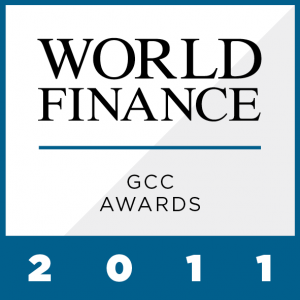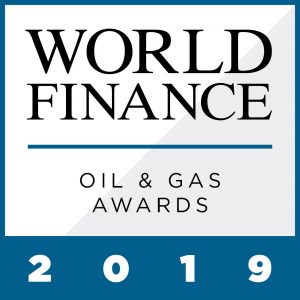Maintenance has also been affected by lower prices. Some companies saw maintenance as a noncritical cost in 2018 and chose to defer it until prices increased. This resulted in many rigs suffering from outdated infrastructure. Similarly, employee numbers have been reduced. Between 2014 and 2016, one major oil producer cut staff numbers by as much as 16 percent.
However, businesses that have adopted a short-term outlook could see their approach come back to haunt them. Increasing production now that prices have recovered will not be easy, particularly with failing assets and a limited number of employees. It is not as simple as turning the tap back on.
Digging deep
Even considering recent price increases, many oil and gas companies are well aware that they face significant long-term challenges. Consumers are demanding their governments and energy companies take the health of the planet more seriously and a move to a low-carbon world seems inevitable. It is a question of when, not if, businesses move away from fossil fuels.
This does not mean traditional oil and gas firms do not have a role to play in the planet’s future energy make-up. The transition to renewables will certainly be a gradual process, but one that businesses need to react to immediately. Investing in smart drilling technology will be necessary, as will incorporating real-time analytics and best-in-class smart sensors.
If demand does fall because green technologies are being embraced on a larger scale, oil and gas firms will have little choice but to become more productive and efficient to survive. Investment in new technologies will allow them to achieve this.
Some in the oil and gas industry are beginning to explore alternative uses for their products in anticipation of renewables fully replacing combustible fuels. Oil and gas, for example, can be used in the creation of other petrochemical products, so they are unlikely to disappear even if their utility as a fuel source is diminished.
The most forward-looking fossil fuel firms are investing in renewable energy. Often, the engineering expertise possessed by major oil and gas companies translates well into renewable technologies. Nevertheless, businesses that are used to the high-risk, high-return world of oil and gas should not run headfirst into the renewable energy market: businesses would do well to ensure they take the necessary time to acquaint themselves with the renewable market before making investments.
Long-term environmental challenges persist even when firms have finished drilling for oil or gas. Decommissioning rigs that have come to the end of their lifespan is a sensitive issue, with environmental considerations often coming into conflict with safety concerns. Globally, there are more than 600 rigs that must be decommissioned by 2021, and this figure may rise if supply-side challenges become more pronounced.
The future may hold challenges for the oil and gas industry, but they are not insurmountable. In recent years, agile businesses have proven themselves capable of withstanding a price crash and growing demands from environmentally conscious consumers. The best among them have turned their biggest challenges into new opportunities, investing with the future in mind. These are the businesses that have been recognised by the World Finance Oil and Gas Awards 2018.
World Finance Oil & Gas Awards 2018
Best Fully Integrated Company
Africa: Sonangol
Asia: PETRONAS
Middle East: Saudi Aramco
Eastern Europe: LUKOIL
Western Europe: BP
Latin America: YPF
North America: Chevron
Best Independent Company
Africa: Shoreline Natural Resources
Asia: Cairn India
Middle East: Genel Energy
Eastern Europe: Irkutsk Oil Company
Western Europe: Wintershall
Latin America: GeoPark
North America: Apache Corporation
Best Exploration & Production Company
Africa: Tullow Oil
Asia: JX Nippon Oil & Gas Exploration
Middle East: Petroleum Development Oman
Eastern Europe: Novatek
Western Europe: Equinor
Latin America: Pluspetrol
North America: Concho Resources
Best Downstream Company
Africa: Petrolex
Asia: PETRONAS
Middle East: ADNOC
Eastern Europe: Tatneft
Western Europe: Repsol
Latin America: Ecopetrol
North America: Motiva Enterprises
Best Upstream Service & Solutions Company
Africa: Aquashield Oil & Marine Services
Asia: Sapura Energy
Middle East: MB Petroleum Services
Eastern Europe: Rosneft
Western Europe: Halliburton
Latin America: Baker Hughes
North America: Schlumberger
Best Downstream Service & Solutions Company
Africa: Puma Energy
Asia: PTTEP
Middle East: Kuwait Petroleum International
Eastern Europe: LITASCO
Western Europe: VARO Energy
Latin America: Ipiranga
North America: Marathon Petroleum
Best Drilling Contractor
Africa: Shelf Drilling
Asia: COSL
Middle East: ADES International Holding
Eastern Europe: Eurasia Drilling Company
Western Europe: KCA Deutag
Latin America: San Antonio Internacional
North America: Rowan Companies
Best EPC Service & Solutions Company
Africa: Amec Foster Wheeler
Asia: JGC
Middle East: NPCC
Eastern Europe: ZAVKOM
Western Europe: Wood Group
Latin America: Techint Engineering & Construction
North America: McDermott
Best Sustainability Company
Africa: SPDC
Asia: PTTEP
Middle East: ADNOC
Eastern Europe: Gazprom
Western Europe: Total
Latin America: YPF
North America: Pioneer Natural Resources
Best CEO
Africa: Benedict Peters, Aiteo Group
Asia: Wan Zulkiflee, Petronas
Middle East: Ahmed Al Jaber, ADNOC
Eastern Europe: Alexey Miller, Gazprom
Western Europe: Patrick Pouyanné, Total
Latin America: James Park, GeoPark
North America: Timothy Dove, Pioneer Natural Resources
Best Oil & Gas Law Firm
Africa: Templars
Asia: Weerawong C&P
Middle East: White & Case
Eastern Europe: CMS Russia
Western Europe: Ashurst
Latin America: Canales Auty
North America: Maalouf Ashford & Talbot
Best CTRM Company
Global: Allegro Development









